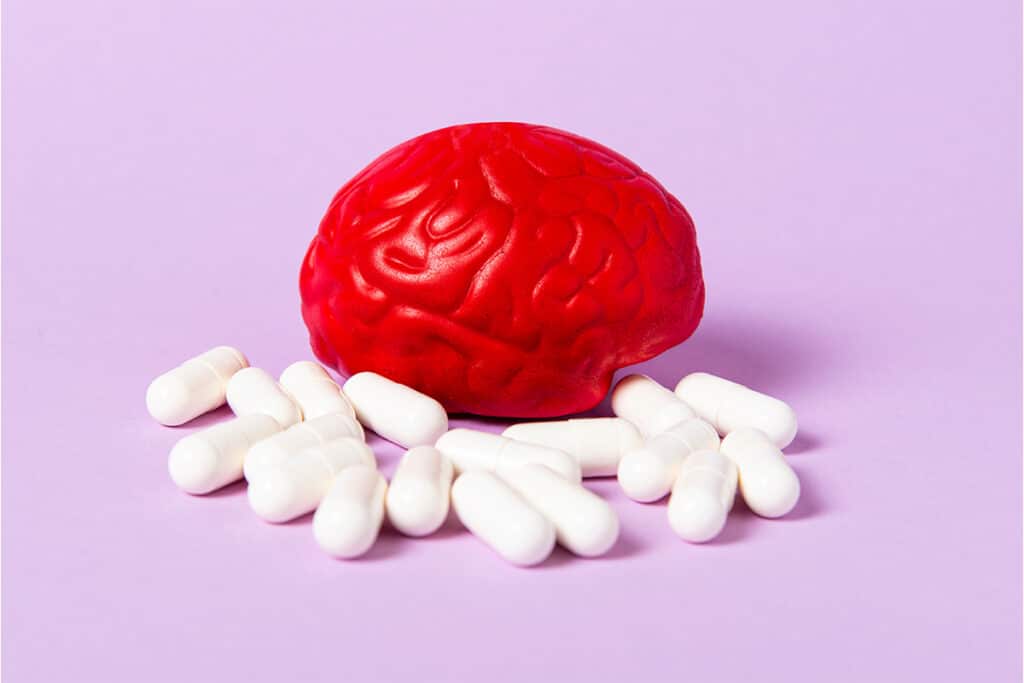
7 Shocking Facts About the Google Memory Game You Never Knew
We all have our favorite memory games, but did you know that Google has entered the ring with an impressive array of neurologic challenges for

Are you searching to boost your brainpower? You’re not alone; millions of people around the world use nootropics to enhance their cognitive performance, as our thesis nootropics review outlines. But with so many different supplements available on the market, it can be hard to know which one is ideal for you. In this article, we’ll take a closer look at our thesis nootropics review and explore how they can help enhance mental sharpness.
Nootropics, also referred to as “smart drugs,” are substances designed to enhance cognitive function. With our society placing increasing value on productivity and mental clarity, these substances have become increasingly popular. But what exactly are nootropics, and what benefits and risks come with taking them? In this post we’ll answer all those questions and more. Whether you’re just curious or a business professional seeking an edge in the market place, read on for all the essential knowledge about nootropics.
Nootropics are a class of drugs composed of both natural and synthetic substances. They work by modulating neurotransmitter levels in the brain, leading to improvements in memory, focus, motivation and other cognitive functions. Many people take these nootropics in an effort to increase productivity or optimize performance – some Silicon Valley entrepreneurs even referred to them as “the limitless pill” after watching 2011 movie in which character takes mysterious drug that allows him to use 100% of his brain power.
Research into the long-term effects of taking nootropics is still being done, but some documented benefits have been linked with their use. Many people report feeling more focused and motivated after using nootropics; many claim to have gained a new sense of purpose that drastically changes their outlook on life. Studies have even demonstrated that nootropics may help improve memory recall as well as reduce stress and anxiety levels–another important factor for optimizing cognitive function.
Nootropics provide numerous advantages, such as reduced stress and anxiety levels, improved sleep hygiene, emotional benefits like feeling rested knowing you’re taking care of both mind and body, and feeling more in control of one’s life and future.
Of course, as with any drug, taking nootropics has its risks. Common side effects include headaches, nausea and dizziness; however more serious consequences could occur if taken in large doses or for extended periods of time. Furthermore, since many nootropics lack FDA regulation it’s essential that you do your research before taking any supplement–even one that appears natural. Always consult your doctor first before beginning any new regimen of supplements.
Nootropics are becoming more and more popular as our society places greater value on productivity and mental clarity. But what exactly are they, and what benefits and risks come with taking them? In this post, we’ll answer all these questions and more in our thesis nootropics review. So whether you’re just curious about them or a business professional looking to stay ahead of the competition, now you know everything there is to know about nootropics!
The nootropic market is expanding rapidly, and with so many people offering you something they claim will help your mind develop, it can be hard to distinguish fact from fiction. Unfortunately, there is no precise definition of what these substances actually do or how they affect the body; however, since most share some common features, it might be worth researching further before taking anything off the shelf without consulting with your doctor first! Hopefully our thesis nootropics review has answered some of your questions regarding these supplements.
Nootropics encompass a broad range of substances, from basic vitamins and minerals to more complex compounds. Although there is no definitive list of nootropics, many share certain traits: they often come in pill form and should be taken on an ongoing basis.
Additionally, nootropics are often advertised as safe and effective for a wide range of users. Many claim that nootropics can benefit everyone from students to CEOs; however, it’s essential to remember that these supplements lack regulation by the FDA and thus their safety or efficacy has yet to be proven definitively. Before taking any nootropic, read our thesis nootropics review carefully and consult your healthcare provider or professional to confirm if it’s suitable for you.
Nootropics are a class of drugs that have been scientifically proven to improve memory, attention and executive function. These agents work by modulating neurotransmitter levels in the brain which may result in improved cognitive performance. It’s important not to rely solely on nootropics or our thesis nootropics review for all benefits as these cannot provide them alone.
Nootropics, also referred to as cognitive enhancers or smart drugs, are a class of drugs that have been scientifically proven to improve memory, attention and executive function. Nootropics work by modulating neurotransmitter levels in the brain which can lead to improved cognitive performance. Caffeine is perhaps the most well-known nootropic; it’s found in many foods and beverages; other popular nootropics include modafinil, amphetamines and nicotine.
Nootropics have been scientifically proven to improve cognitive function, however it’s essential to remember they aren’t a panacea. When considering using nootropics to enhance your cognition, consult your doctor or qualified healthcare provider first to make sure they are suitable for you.
Nootropics, also referred to as cognitive enhancers, are substances that claim to enhance mental performance. This includes memory and focus as well as creativity and problem-solving ability. While there is some evidence in support of nootropics’ effectiveness, scientists remain uncertain about their long-term safety. What exactly are nootropics and what do they do? How long have these been around? Are there any risks involved with taking nootropics? What benefits come with using nootropics? And how do you know if nootropics are right for you?
Some nootropics have been more extensively researched than others, yet all remain somewhat controversial. In this article, we provide a comprehensive thesis nootropics review which summarizes the current state of research on nootropics and their potential usefulness for cognition enhancement. We also address some potential risks associated with nootropic use and suggest ways to minimize those hazards. Ultimately, it’s up to the reader to decide if taking nootropics outweighs any potential disadvantages; and remember – always consult your doctor first when taking any kind of supplement!
Nootropics hold great promise for improving cognitive function. Clinical studies have demonstrated that these drugs may enhance cognition in healthy adults, though more research is necessary to confirm if they’re effective at treating specific disorders such as Alzheimer’s or Parkinson‘s. Indeed, several clinical trials on this topic suggest Nootropic supplements could benefit those suffering from brain injury-related difficulties with memory recall – something our thesis nootropics review explores further.
Clinical studies have demonstrated that nootropics can enhance cognitive function in healthy adults. While the precise mechanism of action remains uncertain, it is believed that nootropics work by modulating neurotransmitter levels and/or increasing cerebral blood flow.
No matter the cause, research has indicated that nootropics may enhance cognition in healthy individuals. Furthermore, some evidence suggests they could potentially help treat certain cognitive disorders like Alzheimer’s and Parkinson’s diseases. Further study is necessary to confirm these results; however, the potential benefits of nootropics on cognitive function is certainly exciting.
Nootropics are a class of cognitive-enhancing drugs designed to improve memory, focus and attention span. While nootropics tend to be safe and well-tolerated by most users, there may be side effects. The most frequent adverse reactions associated with nootropics include headache, nausea and anxiety – though usually mild and temporary in nature; these could be serious in certain individuals. Therefore it’s important to speak with your healthcare provider if you experience any of these effects before beginning or continuing use of nootropics.
As noted in our nootropics review, it’s essential to remember that nootropics are not a panacea for all cognitive issues. While they can enhance cognitive function in healthy people, they won’t necessarily improve it for those suffering from Alzheimer’s disease, Parkinson’s disease or other forms of dementia. Before considering taking nootropics to enhance your cognition it is wise to consult your healthcare provider first to make sure they are suitable for you.
Nootropics are dietary supplements designed to enhance cognitive function. Typically, they contain vitamins, minerals and herbs known to boost brain power. Although nootropics can be effective, there may also be potential side effects like headache, nausea or insomnia; anxiety has also been reported as a possible effect. If you experience any of these side effects or believe you may be at risk for experiencing them, consult your healthcare provider immediately; they can advise whether nootropics are right for you.
Overall, nootropics are a safe and effective way to enhance cognitive function; however, it’s essential to be aware of any potential side effects before taking them.
Nootropics, or cognitive enhancers, have seen a resurgence in recent years due to their proven benefits. Our thesis nootropics review revealed some interesting data regarding this emerging class of drugs.
As previously discussed in our thesis nootropics review, nootropics are a class of drugs that have seen increasing popularity in recent years. Since much about their long-term effects is unknown, it is best to proceed with caution when taking them for personal use or as directed by your physician or healthcare provider. Nootropic medications may interact with other medications and even cause side effects themselves – so make sure you are aware of all potential outcomes before using! It is always wise to consult your physician or healthcare provider first before beginning any nootropic usage!
Although these drugs show promise for treating conditions such as Alzheimer’s and Parkinson’s Disease, much remains uncertain about their long-term effects. Due to this, it is generally advised that children and pregnant women refrain from taking nootropics unless instructed otherwise by their physician or healthcare provider. Additionally, healthy adults should only use nootropics under the guidance of a medical professional as they may interact with other medications or cause potential side effects. As stated in our thesis nootropics review, further research is underway to determine whether nootropics are safe and effective for many different individuals. Until more is known about them, it’s best to err on the side of caution and be cautious.
Nootropics, also referred to as “smart drugs” or “memory enhancers,” are increasingly becoming popular nootropics. Popular options include modafinil, caffeine and piracetam. Modafinil is a prescription drug prescribed to treat narcolepsy; however it has also been used by healthy individuals wanting to improve cognitive performance. Caffeine can be consumed in coffee, tea and energy drinks but may also be taken in pill form. Piracetam has been demonstrated to improve memory and cognitive performance among elderly individuals; however it remains uncertain whether this effect extends equally well for healthy young adults.
Nootropics are generally safe and well-tolerated. However, they may cause side effects like insomnia, anxiety or nausea. Before beginning any nootropic regimen it’s essential that you speak to your healthcare provider first.
Nootropics are a class of drugs designed to enhance cognitive function. They’re popular among students, professionals, and athletes as an aid in performance. Nootropics work by increasing the availability of neurotransmitters such as dopamine and norepinephrine that are involved in cognition and memory formation.
Additionally, our thesis nootropics review indicates that nootropics may improve blood flow to the brain and protect cells from damage. While there is a wealth of research demonstrating the positive effects of nootropics on cognitive functioning, it should be remembered that they are not a cure-all for all cognitive issues; rather they should be seen as one tool among many to enhance cognition in specific populations.

We all have our favorite memory games, but did you know that Google has entered the ring with an impressive array of neurologic challenges for

Einstein’s Universal Appeal: Exploring the Global Impact of an Iconic Genius in 2023 Why Does the World Remember Einstein as a World Citizen? What is

I genuinely dislike computer science, but that won’t stop me from earning my degree by 2023. It’s no secret that computer science classes can be

In the early days of Instagram, getting verified was considered a sign of honor. That little blue checkmark next to your name indicated you were
† These statements have not been evaluated by the FDA. This product is not intended to diagnose, treat, cure, or prevent any disease.